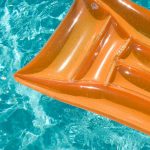Traveling is a wonderful way to restore your mind, body, and soul. Your hearing loss should not prevent you from visiting family and friends or exploring a new location and culture. However, there are a few general tips to consider when booking your next trip.
Transportation
Airplanes
Airplane noise is loud for everyone but especially loud for those wearing hearing aids. This background noise can make communicating with your seat partner and the flight attendants particularly difficult.
You can talk to your provider before traveling to see if there are settings on your hearing aids to help mitigate some of this background noise, making it easier to communicate. You can also use the pamphlets provided in the back of the airplane seat pockets. Typically airlines have menus and safety information available to read.
Cars
As you may have noticed already, where you sit in the car changes how you hear the people in the car with you.
Sitting in the front, either in the driver’s seat or front passenger seat, tends to allow better for better hearing and understanding. When you sit in the backseat, the sounds of people talking in the front travel in the direction in which they face- forward- making it more difficult for you in the back to hear.
Boats
Recreational boats, ferries, and cruise ships have similar background noises as airplanes with added wind noise. If it is possible to stand in a wind-blocked area while the boat is moving then that is best to block out the sounds of wind against your hearing aids.
Depending on the size boat you are on, it is important to keep in mind any mist or splashing from waves as most hearing aids are not yet waterproof.
Hotel accommodations
Plan by calling the hotels you are staying at and asking what accommodations they have for the hearing impaired.
This can include everything from subtitles on the television to light signals used for a knock on the door or the phone ringing.
If you do not sleep with your hearing aids ask about fire and smoke alarms that the hotel uses and whether or not they use a light signal in the room for these and other alarms.
Tours
Bus tours
Similar to riding in cars, where you sit on the bus matters for your hearing. More specifically, if you are on a bus tour where there is an in-person guide, sitting close to the front or where the guide is speaking will be crucial to hearing and understanding them.
On large tours, they may use a microphone to speak to the whole bus however sitting close to the guide speaking allows you to face them as if you are having a conversation rather than just relying on the speaker system of the bus.
It is also possible you will have a pre-recorded audio guide on the bus. You must make that distinction ahead of time and ask about accommodations for those using hearing aids.
Often the standard headphone, especially in the ear types, are not compatible with hearing aids.
Walking tours
Walking tours are great for those with hearing aids, provided the group isn’t too large and you can stand close and face the guide.
Ask ahead of time if the guide uses any sort of microphone and headphone system and if they do what kind of arrangements they have for those with hearing aids.
Some tour companies will organize tours specifically for those with hearing loss or who cannot use the headphone system.
COVID considerations
The comfortability of masks with hearing aids is vital to a successful trip. If you wear behind-the-ear hearing aids, the addition of the mask straps behind the ear can be uncomfortable. Mask strap extenders are available to help reduce the pressure behind your ears.
Communicating with people wearing masks can be its own challenge. It is still important to face the person you are speaking to regardless of whether they are wearing a mask or not. If masks are required where you are and you are unable to understand someone, use your phone or a pen and paper to write out what you are trying to ask and have them write their response similarly.
Traveling with hearing aids can be just as rewarding as before hearing loss. A successful trip will require planning ahead and advocating for yourself along the way.






